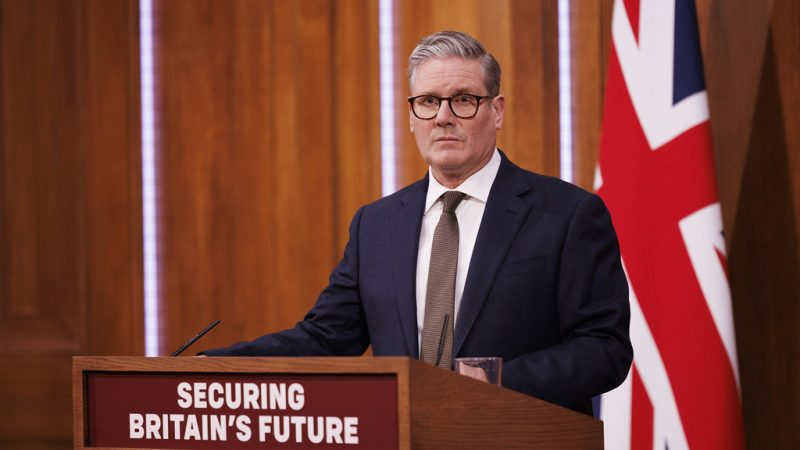
Three deep blockages stand in the way of this government changing Britain. Power and wealth are over-centralised in the southeast. Structural pressures, like ageing and high interest rates, put strain on our public finances. A sclerotic state cannot get things done.
In our new paper out today – Britain’s Bottlenecks – we provide a clear diagnosis of these problems and outline why Labour must make fixing them a priority.
None of these problems is new. None is simple. As much as populists would have us think otherwise, there is no one weird trick that will make Britain thrive.
Any serious political project has to face these bottlenecks head-on. In its first year, Labour has been more serious in its reckoning with these problems than in any year of the last Conservative government. But it should not underestimate their scale. The Conservatives’ record shows what happens when governments don’t grapple with them.
Anglesey’s nuclear winter
Our report starts in Anglesey/Ynys Môn. Albert Owen, its last Labour MP, spent years fighting for a new nuclear station at Wylfa. This was to be the centrepiece of what local leaders called ‘Energy Island’, their economic plan for Anglesey. Hitachi sank roughly £2 billion into the development. But Britain could not close the deal.
Now the project is in stasis. Anglesey’s economy won’t collapse if it doesn’t make Energy Island a reality. It will feel more like a gentle decline, with life getting harder for the least fortunate.
Anglesey’s predicament is Britain’s. It encapsulates what blocks us:
Firstly, Westminster is paralysed by having to decide among hundreds of Angleseys. Like most places outside the southeast, the island depends heavily on fiscal transfers and holds only the autonomy Whitehall chooses to grant to it or the Senedd.
Hundreds of Labour MPs fight for their constituencies. Whitehall can’t make sensible decisions about them all. Britain has the most fiscally centralised government in the rich world. None of our peers makes decisions like we do.
READ MORE: ‘Why the left should embrace air conditioning as part of climate action’
The UK has the most centralised government in the OECD
Secondly, long-term fiscal pressures breed short-termism. Nick Clegg famously dismissed investing in nuclear energy because it would not arrive until the 2020s. By the decision point on Wylfa Newydd in 2019, ministers decided they couldn’t meet the guarantees needed by the developer.
The last government never faced up to its basic problem: it had promised low taxes without fewer public services. Public capital investment in places like Anglesey was sacrificed as a result.
Thirdly, sclerosis has destroyed the country’s capacity to get things done. We used to build nuclear power plants in years, not decades. Across the economy, a steady accumulation of rules and processes, alongside a hollowing out of state capacity, means we are much less able to get things done. This made development in Anglesey much more expensive than it needed to be.
READ MORE: Cabinet rankings: Kendall overtakes Reeves as least popular minister among Labour members
‘Labour must spend political capital on solving these core problems’
Fixing these problems is hard. But Labour’s political project must do so.
If it cannot spread power and opportunity to every part of Britain, the country will continue to work in the interests of London and the southeast first. If it cannot contain fiscal pressures, our public services will suffer, and we won’t be able to manoeuvre in a more dangerous world. If it cannot repair the state’s ability to act, living standards will stall, and public trust will erode further.
Britain’s Bottlenecks is about the core problems that Labour’s political project should focus on solving. This is where the government must spend its political capital. In the months ahead, we will be setting out the ideas that can break these blockages.
Subscribe here to our daily newsletter roundup of Labour news, analysis and comment– and follow us on Bluesky, WhatsApp, X and Facebook.
- SHARE: If you have anything to share that we should be looking into or publishing about this story – or any other topic involving Labour– contact us (strictly anonymously if you wish) at [email protected].
- SUBSCRIBE: Sign up to LabourList’s morning email here for the best briefing on everything Labour, every weekday morning.
- DONATE: If you value our work, please chip in a few pounds a week and become one of our supporters, helping sustain and expand our coverage.
- PARTNER: If you or your organisation might be interested in partnering with us on sponsored events or projects, email [email protected].
- ADVERTISE: If your organisation would like to advertise or run sponsored pieces on LabourList‘s daily newsletter or website, contact our exclusive ad partners Total Politics at [email protected].




More from LabourList
James Frith and Sharon Hodgson promoted as government ministers
‘Turning public services around: Haringey’s story of child protection’
‘Can Labour turn the green tide back to red?’